BOOOONEE!
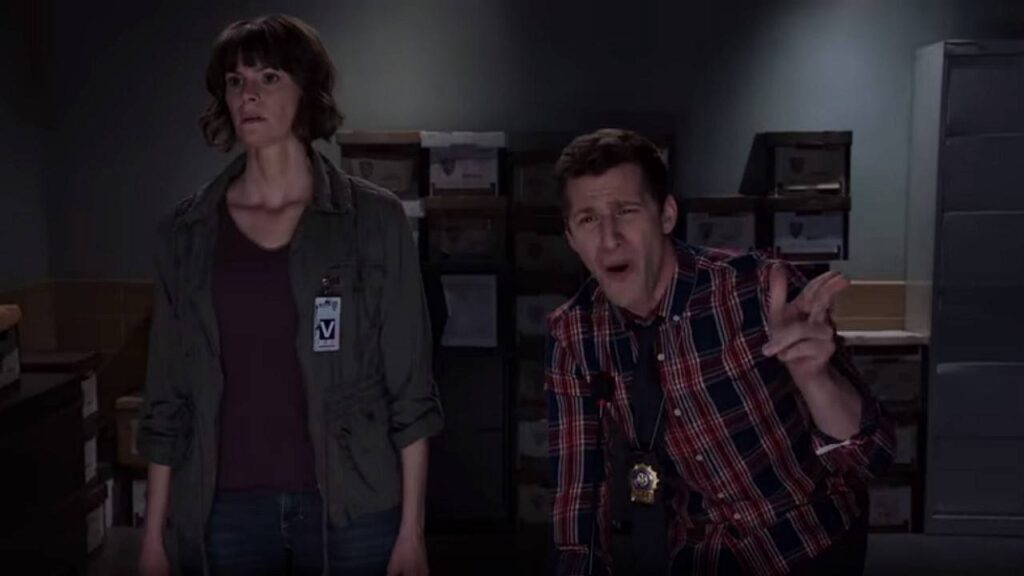
Or how Brooklyn Nine-Nine churns comedy out of crime
TV is always such an uncertain business. Shows loved by almost everyone that watch it often don’t make it past the first season (Firefly, anyone?), whereas some shows that hardly anyone seems to watch run well past the sixth season.
When Brooklyn Nine Nine was axed in 2018, the show began trending worldwide on Twitter. The massive outpouring of fans wailing, bitching, and declaring their unhappiness brought publicity to the show like never before. It startled a lot of people (who hadn’t even heard of Jake Peralta before) that the likes of legends and celebrities such as Mark Hamill, Guillermo del Toro and Lin-Manuel Miranda were among these passionate fans agonizing over the recent events.
But at what point did such a traditionally structured comedy show gain so much cult following?
Roots

Brooklyn Nine Nine was created by Michael Schur and Dan Goor. Schur, mostly known for his work as one of the excellent writers of The Office, has become one of the greats in the show-running biz. He co-created Parks and Recreation. He pitched Golden Globe nominee The Good Place to NBC on his own. These shows are not only some of the best comedies ever, but they also enjoy a certain fame that usually comes with a massive cult-like worship among fans worldwide.
In the 40s and 50s, TV series focused on work or on the family but rarely were they combined or brought together. One offered a respite from the other for example, home meant comfort and a vacation from the anxiety and stress of work. But from the 70s and 80s, this divisive line was blurred giving rise to what is common today: “work families” or the “pal-com”. Home life was now defined as a chosen loving network made up of co-workers and friends rather than biological family.
The show takes you on journey with these characters and their unconventional portrayal of family as they get through life relying heavily on humor and irony but without undermining the goodness in them. The core characters in these series are not yelling for attention about the feats they have accomplished. They’re quietly working, accepting and giving love and improving upon themselves.
But nonetheless a cop comedy is hard to pull off, because how exactly do you churn out comedy from crime?
What makes it special
The answer lies not so much in the murder, but more in the way each crime is dealt with by the squad. The undeniable chemistry between each and every cast member and the strong, platonic bonds forged between their characters sets the show up for a great run. Most scenes, whether it involves Holt’s paternal attitude to Jake, Jake and Amy’s genuine and healthy relationship, Rosa’s no-nonsense badassery or even the lengths Hitchcock and Scully go to avoid doing any work, are brilliantly delivered with the jokes getting more and more absurd; but never at the expense of heartfelt scenes. Moreover apart from the all of the regular tropes, an aspect of the show that sets it apart is in its approach of serious issues not typically dealt with by comic shows of this nature, especially while still retaining the “comic” aspect.
Approach to Serious Issues
Brooklyn Nine-Nine doesn’t often get serious, but when it does, it makes it count.
When asked by a fan about how mental illness is tackled on the show, Andy Samberg (Jake Peralta) said that it’s important to treat those storylines with respect. “Anytime we tackle something that is tricky like that… it has to be the right story so we are walking the line correctly and it doesn’t come across as us making a joke about it and giving it proper respect,” he explained. “That’s why episodes like Rosa deciding to come out or the episode ‘Moo Moo’ where Terry is racially profiled in his own neighborhood, those episodes take a lot longer because if you f**k it up it’s bad.”
Diversity and Inclusion

B99 is also famously known for its more diverse cast and that has given them options. Lazy cultural stereotypes are always a fall back when portraying a largely diverse cast but they are a fall back this show does not seem to need. Each scene remains unique and sometimes particularly funny, purely due to the fact that the show rarely gives in to the usual tropes that are imposed on them. Many of the cast members admit this was what made them so interested in the characters they were called on to play.
When Schur contacted Andre Braugher about playing Captain Holt, Braugher was intrigued that Holt was a gay man in a stable relationship, whose sexual orientation was never played for cheap laughs. How many other shows ever had a character like Terry Crews’ Sergeant Jeffords, who’s a caring mother hen built like a brick house? Stephanie Beatriz, who plays Brooklyn Nine-Nine’s badass, bisexual cop Rosa Diaz, commented on how surprised she was to be cast on the show after Melissa Fumero had already been signed on to play Amy Santiago. Two Latinas (Amy and Rosa) on the show still remain uncommon, but even then B99 never acknowledged it as a main plot point, other than the fact that they share a few commonalities which rise above their highly conflicting personalities. It simply is a fact.
Female Empowerment
When Amy (Melissa Fumero) was first introduced on the show, it was easy to predict what direction the show might go in. The dynamics between Jake and Amy suggested that she was the follower of rules, thus trying her best to make Jake toe the line. Whereas Jake who did things his own way, would still manage to be the best detective on the show. Boy, did they prove us wrong. Throughout the next five seasons, her character continues to astound. Here is a woman who strives perfection but still can’t seem to get over her addiction to cigarettes. Here is a woman who loves rules but still isn’t afraid to find loopholes in them or outright break them when they’re unjust.
Comedy often involves exaggeration and this leads to certain shows cruelly mocking their characters for certain traits. Pop culture has always reinforced the idea that intelligence and looks and desirability can’t go hand in hand for female characters. Amy Farrah Fowler from The Big Bang Theory and Alex Dunphy from Modern Family are examples of women who suffer from a social penalty for being the resident smart person. Audiences so rarely witness a female character who is well-written and who resonates strongly among them in television comedies.
In the commonly cited book ie, the 2007 Geek Chic: Smart Women in Popular Culture, Innes (the author) cites cultural studies scholar Judith Williamson who notes that the most successful films or, in this case, television shows “are those which strike on some contemporary problem or insecurity in the issues they raise, while resolving these issues in a satisfactory or unthreatening way.”
When Amy is promoted to sergeant and Jake and Amy are set to get married (Season 5), Rosa comes to the realization that Amy has been hiding the fact that she has been looking at wedding dresses. She shuts the laptop so Rosa doesn’t see a boutique’s website open and even averts her gaze when they later walk past a bridal store. This is humorous but also a sobering thought, as Amy confesses the reason behind her “nutjob” behavior. She feels insecure as a leader in the historically male world of law enforcement and abandoning her “girly” side seemed the logical way to go about it. She says, “Because being a female sergeant is difficult. I have to work twice as hard to gain my officers’ respect and looking at girly dresses isn’t going to help”. Soon after, the episode culminates in an action sequence with Amy in a puffy wedding dress which Rosa had cajoled her into trying on in her break. Amy chases after a perp vaulting over a couch, tearing the veil around a corner, pushing past people and finally apprehending him with the sash of her dress. She was “Wonder Woman.”
Rosa finally gives Amy the assurance she needs: “You are an amazing cop and a great leader and you’ve proven that a billion times over.” and makes her admit that she would like a prettier dress after all.
And thus, Brooklyn Nine-Nine stays true to their history of doing right by Amy (as well as Gina and Rosa) and all she represents.
Conclusion
Almost every episode of this show subverts traditional cop stories on the regular, and it does so with emotional honesty, all the while celebrating humanity, goodness and silliness.
Brooklyn Nine-Nine returns January 2019 and with a cast such as this, it’s difficult not to welcome them back.

 A perspective on sports in IIIT
A perspective on sports in IIIT  Cheap Thrills
Cheap Thrills 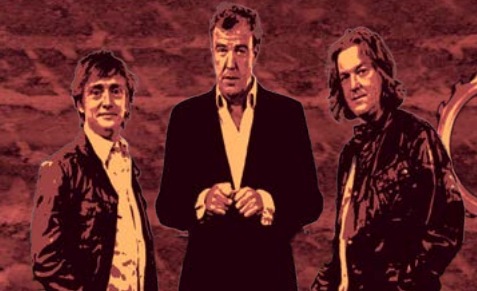 Why Top Gear Currently Sucks
Why Top Gear Currently Sucks 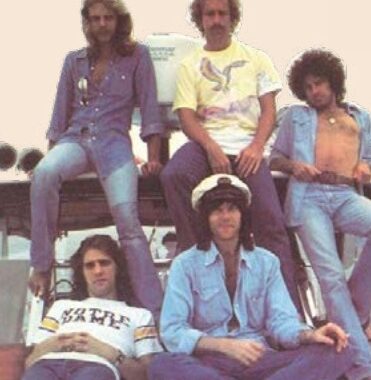 Hotel California
Hotel California 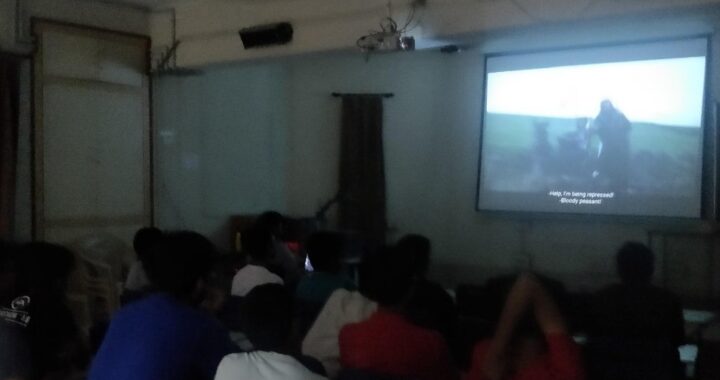 Freshers’ 2020: IIIT Watchlist
Freshers’ 2020: IIIT Watchlist 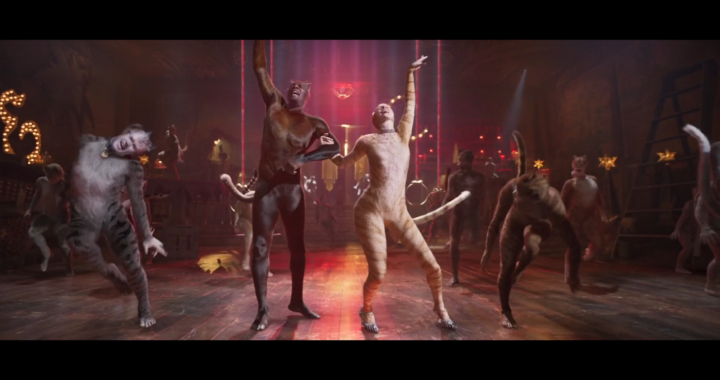 Cats – Furry Fury
Cats – Furry Fury 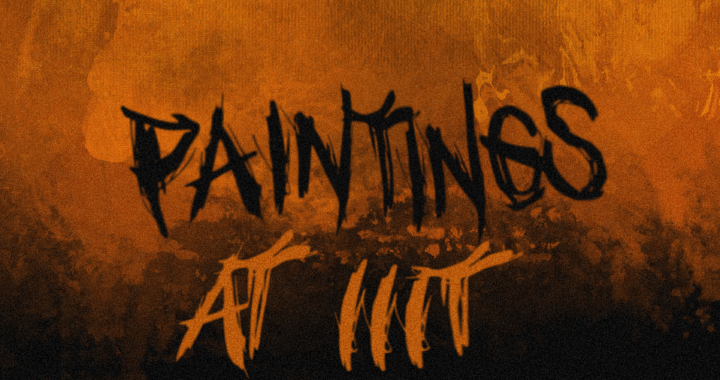 Paintings of IIIT
Paintings of IIIT 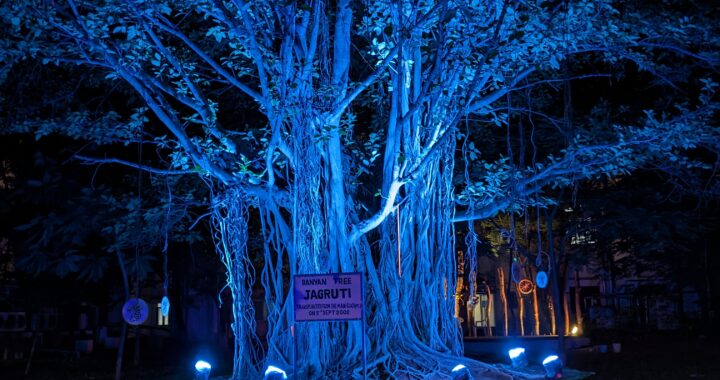 The Tale of Jagruti
The Tale of Jagruti  Cleaning up the Mess?
Cleaning up the Mess?